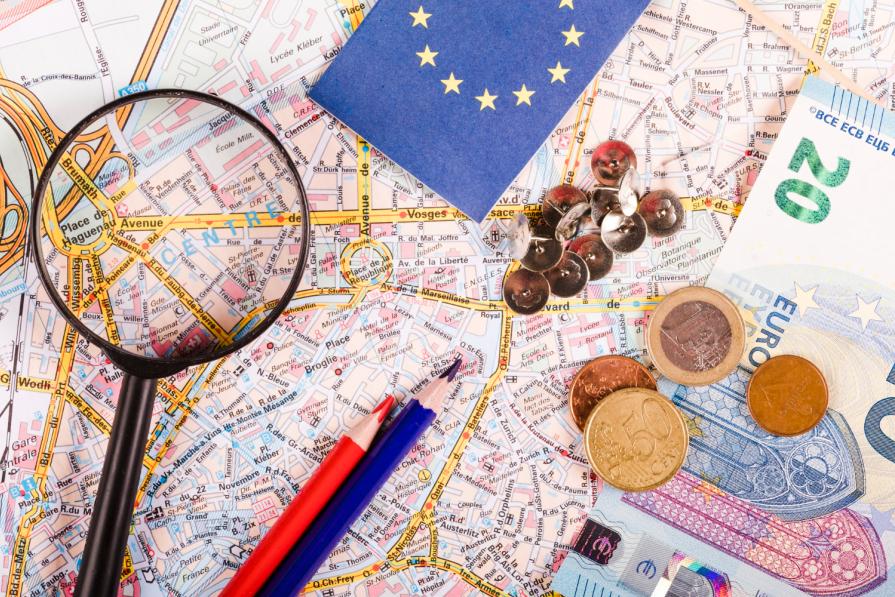A tourist tax is a small fee for travelers who use hotels or go on excursions in a country where this tax is introduced. Countries with a huge flow of tourists introduce such fees to control the traffic of guests and keep the attractions in good condition (for example, inviting more cleaners, ticket takers, security guards, etc.).
Tourists and tour operators may face different types of taxes for travelers: city fees, resort fees, environmental fees, tourist fees, and more. In most cases, taxes for travelers are set by cities where there are a lot of guests. These taxes are legitimate, and their expediency is often emphasized by the World Tourism Organization.
Payment of this tax is usually mandatory when visiting various cities. However, the guest can be exempted from paying the hotel fee if he proves to the administration that he came to the city for work purposes, and not as a tourist.
Where do the collected funds go?
Each country or city independently determines where to spend the funds collected from tourists, but, as a rule, they are spent, among other things, to support the local population, which may experience discomfort due to the excessive flow of tourists. Sometimes the money raised is used to promote and improve the reputation of the city and the country among travelers. In each country, the amount of taxes is different.
Austria
If a traveler comes to Austria, they must pay a tourist tax for each night spent in the country, including camping accommodation. The amount of this tax varies depending on the region of Austria in which the guest is staying. Two key collections that can be found in the country are Tourismusgesetz and Beherbergungsbeiträge. At the moment, in Vienna, these fees range from 0.3 to 3.2% of the total cost of accommodation per day. Travellers with children under the age of 15 do not have to worry about this tax, as they are exempt from the tax.

Belgium
Belgian cities have a variety of tourist taxes.
- For example, in Antwerp, hotel guests pay a flat fee of €2.4 for each night per person. There are exceptions when the guest does not have to pay tax: for example, if the accommodation complies with the "Tourism for All" decree or if children under the age of 18 are traveling with the tourist.
- In Bruges and Ghent, children under the age of 12 will be exempt from the tax. In the famous Bruges, the fee is 2.1 euros per day per person, this applies to all types of accommodation: from hotels to hostels. And in Ghent, the city fee is €3 per day per person. Sometimes this fee is included in the price of the stay, but there may be exceptions.
- In the capital, Brussels, the size of the city tax depends on many factors: the area of the city, the category of the hotel, and so on.

Bulgaria
When visiting Bulgaria, tourists are faced with various local fees – city or resort tax, which vary depending on the area and the category of the hotel. Usually, the city tax is between 0.2 and 1.4 Bulgarian leva (0.1-0.7 euros) for each night per person.
As for the resort tax: it is sometimes set not for the night, but for the entire period of stay. The cost may vary depending on the location, so it is recommended to check this point in advance with the hotel or tour operator.
Croatia
In Croatia, any traveler over the age of 18 is required to pay the Sojourn Tax, which is a fee for the stay. The amount of this fee is usually about 10 Croatian kuna (1.3 euros) for one night for one person. However, there are nuances here: the cost may vary depending on the place and time of year. For teenagers 12-18 years old, there is good news – for them, the rate has been reduced by half! And children under 12 years old (more precisely, their parents) are not obliged to pay at all.

France
Walking along the streets of France and enjoying its beauty, you need to remember about the Taxe de Sejour - this is a local tax for tourists. Its size depends on the comfort and category of the traveler's accommodation and can range from 0.5 to 4 euros for each night spent.
In Paris, the capital of fashion and romance, another 15% is added to the basic rate. So there the fee can reach 4.6 euros. And, of course, this fee does not apply to young people under 18 years of age.
Germany
If a traveler decides to go to Germany, they will come across concepts such as Kulturförderabgabe and Bettensteuer. These are types of tourist fees, which can range from 0.5 to 4 euros for one night, or 7.5% of the cost of accommodation. It all depends on its class, price and location of the hotel.

An interesting fact: in Berlin, the guest will be charged 5% of the rent for the room, but if he stays there for more than 21 days in a row, then this fee will no longer be charged. Business travelers can breathe a sigh of relief – they are exempt from this fee. And one more thing: in Munich, despite its popularity, there is no such tax.
Greece
If a traveler stays in a Greek hotel with one or two stars, he will be charged 0.5 euros per day. Travelers who opt for three-star accommodation will pay €1.5, whereas guests of four- and five-star hotels will pay €3 and €4, respectively.
Italy
Italy has imposed a specific tax on its guests, known as the Tassa di soggiorno. Its size may vary depending on the region and the classification of the tourist's accommodation. If the guest chooses Rome for accommodation, then, depending on the conditions of accommodation, he will have to pay from 3 to 7 euros per day for each person, but only for the first 10 days of stay - then you will not have to pay. Children under the age of 10 are exempt from this tax.

Netherlands
When planning a trip to the Netherlands, it is worth remembering about the accommodation tax, called Toeristenbelasting. This fee applies to almost the entire territory of the country. The amount of tax can be fixed or percentage-based – it all depends on the cost of living. Those who come on vacation to Amsterdam, for example, will have to pay 7% of the amount of the accommodation reservation.
Spain
Travelers to the Balearic Islands, Ibiza and Mallorca should be aware of the local tourist tax that the authorities introduced in 2017. The fee charged applies to all visitors over the age of 16 and applies to most accommodations. During the peak season, guests of high-end hotels will pay €4 per day per person, mid-range accommodation will cost €3, apartments and cruise ships €2, and for those who prefer camping or hostels, the fee will be €1 per day.









